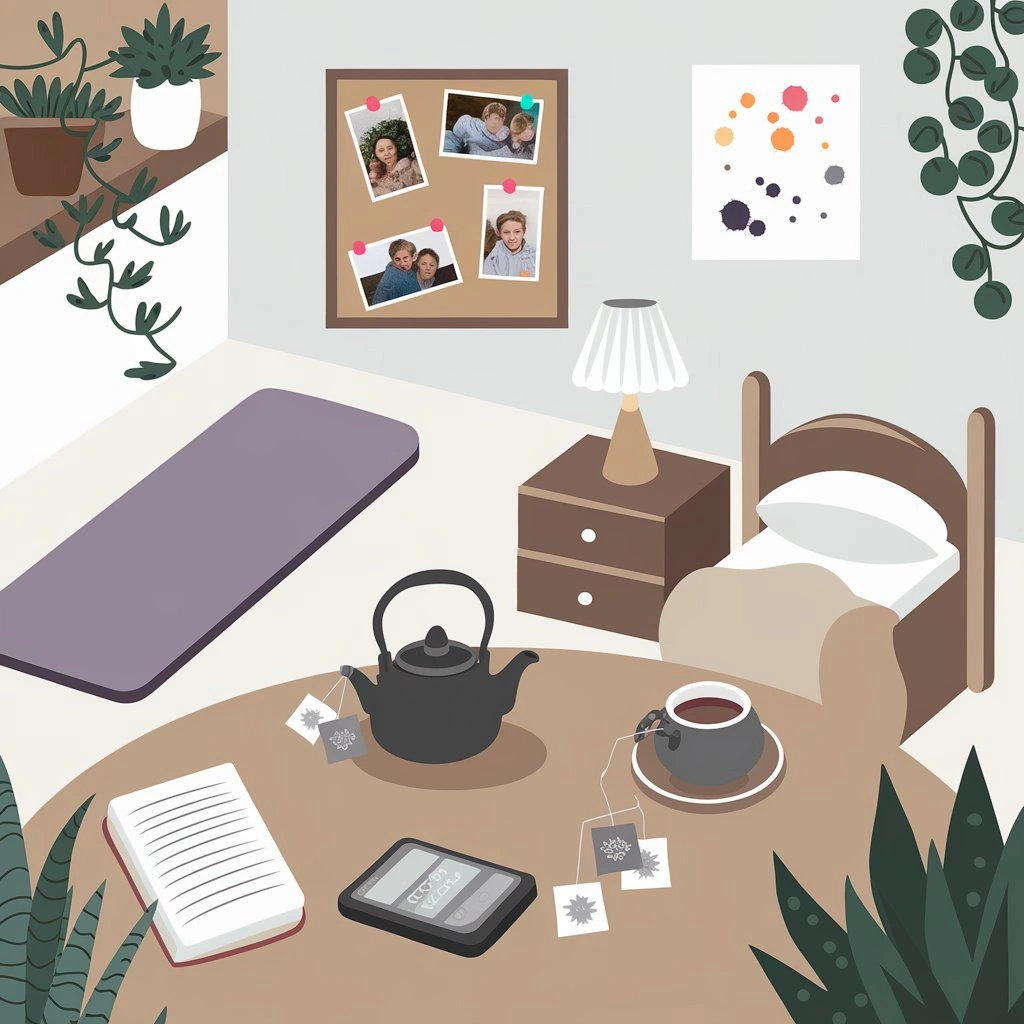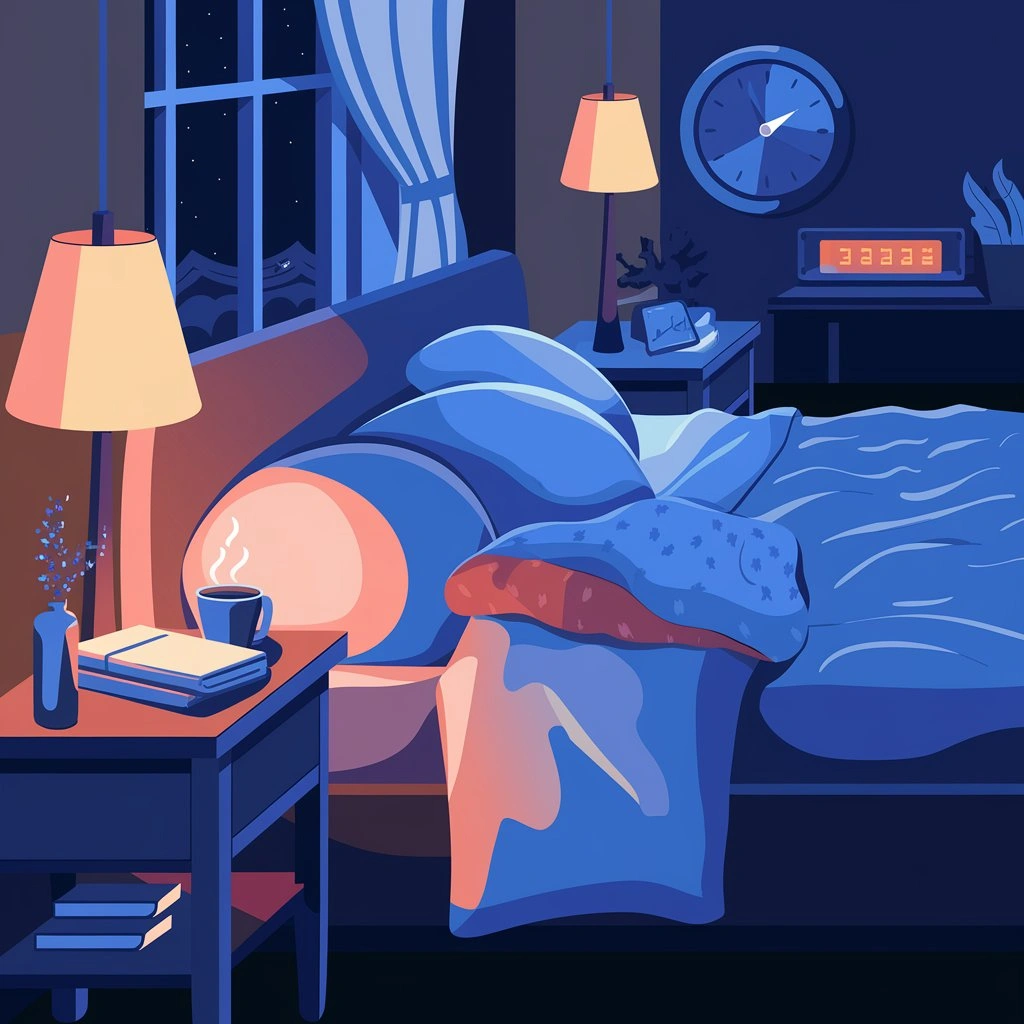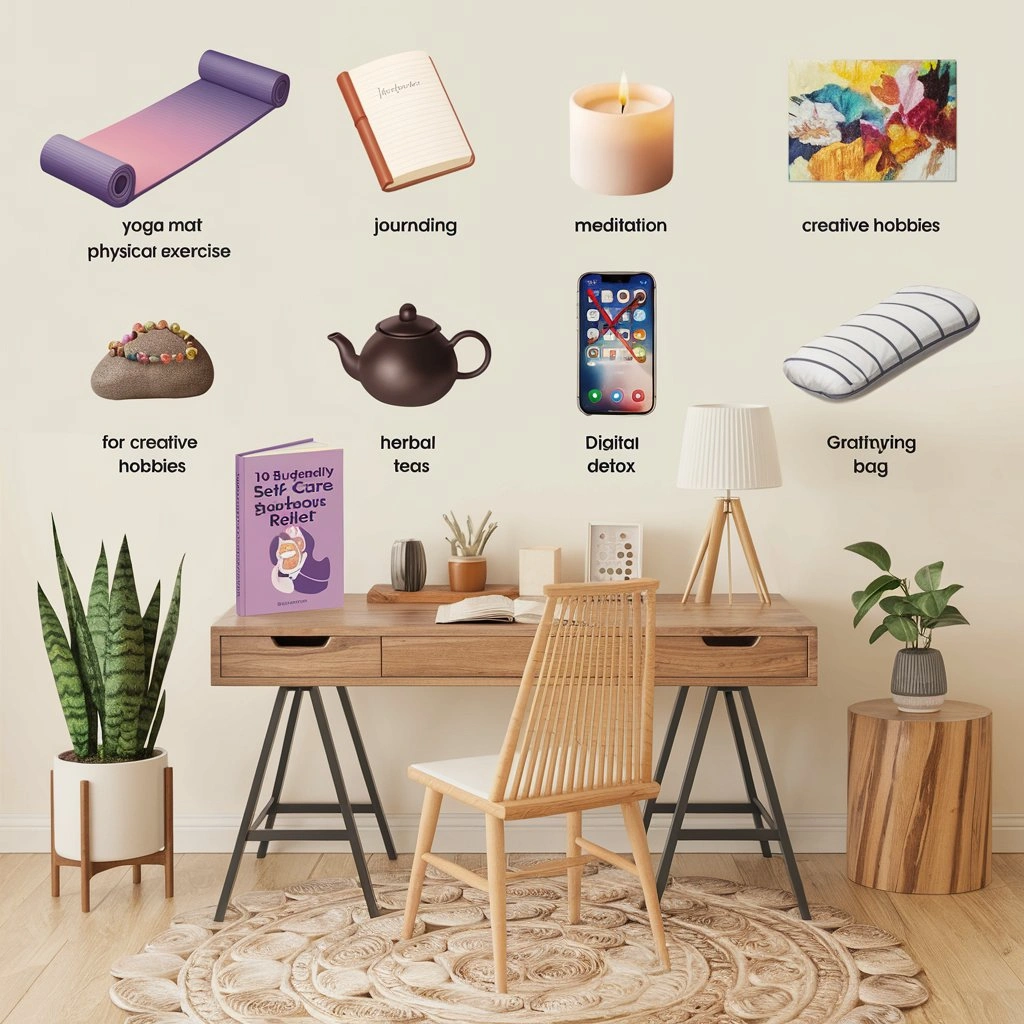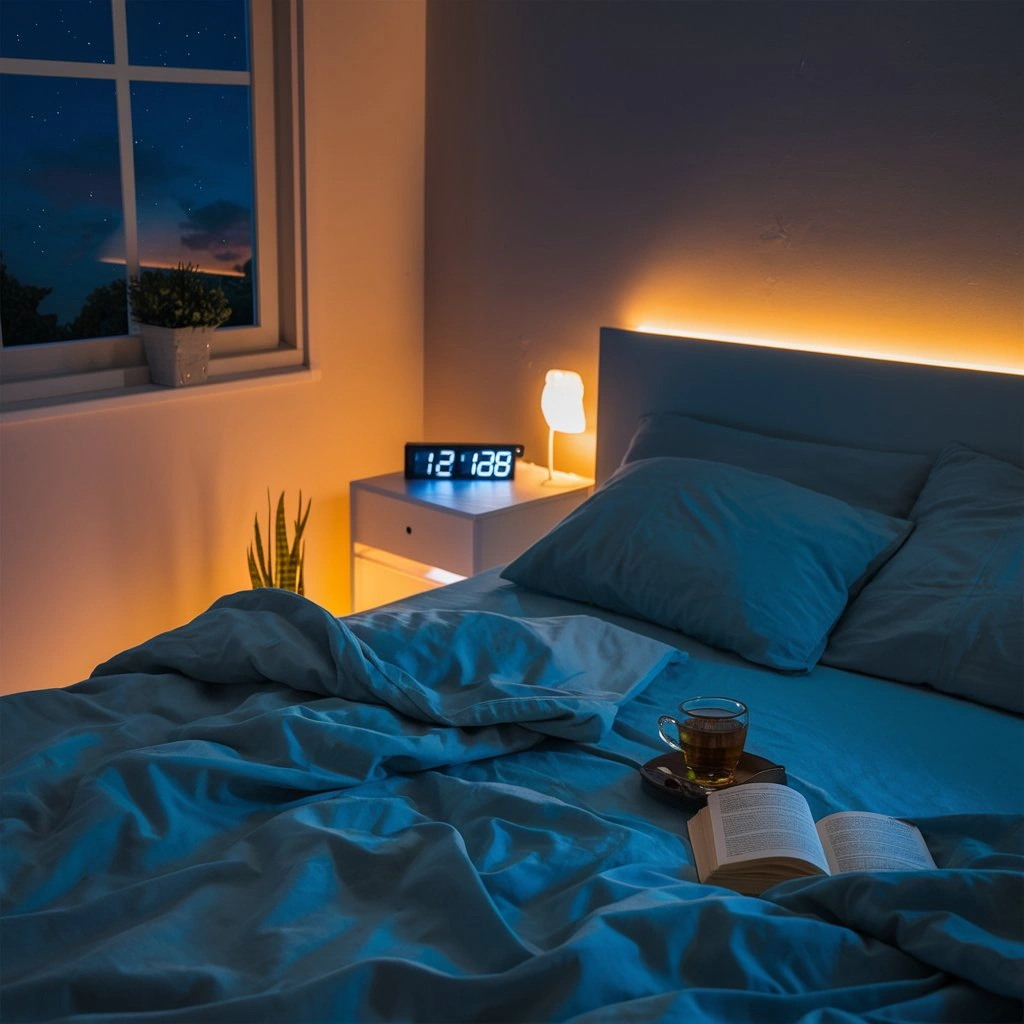Table of Contents
Natural Remedies for Insomnia Relief
Soothing Your Way to a Good Night’s Sleep: Natural Remedies for Insomnia Relief
Insomnia, the frustrating inability to fall asleep or stay asleep, can be a significant challenge for many individuals. While prescription medications may provide temporary relief, they often come with unwanted side effects and the risk of dependency. Fortunately, there are a variety of natural remedies that can help alleviate insomnia without compromising your health.
Herbal Remedies for Insomnia
Herbal teas have long been used as a natural way to promote relaxation and better sleep. Some of the most effective herbs for insomnia include:
- Chamomile: Known for its calming properties, chamomile tea can help soothe the mind and body, preparing you for a restful night’s sleep.
- Valerian Root: This herb has been used for centuries to treat insomnia, and studies have shown it can help reduce the time it takes to fall asleep and improve sleep quality.
- Lavender: The soothing aroma of lavender has been found to have a calming effect on the nervous system, which can help induce sleep.
- Passionflower: This herb is believed to increase the levels of gamma-aminobutyric acid (GABA) in the brain, which can help regulate sleep-wake cycles.
Dietary and Lifestyle Modifications
In addition to herbal remedies, making some simple dietary and lifestyle changes can also contribute to better sleep:
- Maintain a Consistent Sleep Schedule: Going to bed and waking up at the same time every day, even on weekends, can help regulate your body’s internal clock and improve sleep quality.
- Limit Caffeine and Alcohol: Consuming caffeine too late in the day and using alcohol as a sleep aid can disrupt your sleep patterns, so it’s best to limit these substances, especially in the evenings.
- Create a Relaxing Bedtime Routine: Engaging in calming activities, such as reading, taking a warm bath, or practicing gentle stretching or meditation, can signal to your body that it’s time to wind down and prepare for sleep.
- Optimize Your Sleep Environment: Ensuring your bedroom is dark, cool, and quiet can create an ideal environment for restful sleep. Consider using blackout curtains, a white noise machine, or a comfortable, supportive mattress and pillows.
Mindfulness and Relaxation Techniques
Mindfulness and relaxation practices into your daily routine can also be beneficial for addressing insomnia:
- Meditation: Regular meditation can help calm the mind, reduce stress and anxiety, and promote better sleep. Consider trying guided meditations or mindfulness exercises before bedtime.
- Deep Breathing: Slow, deep breathing exercises can activate the parasympathetic nervous system, which is responsible for the body’s “rest and digest” functions, helping to induce a state of relaxation.
- Progressive Muscle Relaxation: This technique involves systematically tensing and then releasing the muscles throughout the body, allowing for a deep sense of physical and mental relaxation.
It’s important to note that while these natural remedies can be effective for many people, it’s always a good idea to consult with a healthcare professional, especially if you have an underlying medical condition or are taking any medications. They can provide personalized guidance on the best approach to address your specific sleep concerns.
By incorporating a combination of these natural solutions, you can take steps towards regaining control of your sleep and improving your overall well-being. With a little experimentation and patience, you can find the right natural remedies to help you achieve the restful, restorative sleep you deserve.
Explore : 5 Simple Changes to Improve Your Sleep Quality for Free and Wake Up Feeling Amazing

Creating a Peaceful Sleep Environment
Crafting a Sleep-Friendly Sanctuary
Achieving a good night’s sleep can be a challenge for many individuals, but creating a peaceful sleep environment can significantly improve the quality of your rest. By implementing a few strategic changes to your surroundings, you can foster a serene atmosphere that promotes relaxation and restful slumber.
Optimize Lighting
One of the most crucial elements in establishing a sleep-friendly environment is lighting. Exposure to bright, artificial light can disrupt your body’s natural circadian rhythms, making it more difficult to fall and stay asleep. Dim the lights in your bedroom as the evening approaches, and consider investing in blackout curtains or shades to block out any external light sources. Use soft, warm-toned lighting, such as candles or lamps with dimmable features, to create a cozy and inviting ambiance.
Temperature and Ventilation
The temperature and airflow in your bedroom can also have a significant impact on your sleep quality. The ideal room temperature for sleep typically falls between 65°F and 70°F (18°C and 21°C). Ensure that your bedroom is well-ventilated, with fresh air circulating throughout the space. If needed, use a fan or air conditioning unit to maintain a comfortable temperature and promote better airflow.
Minimize Noise and Distractions
Eliminating or reducing external noise and distractions is another essential step in creating a peaceful sleep environment. Consider using a white noise machine or earplugs to block out disruptive sounds, such as traffic or neighborhood noise. Avoid having a television, computer, or other electronic devices in the bedroom, as the blue light emitted from these screens can interfere with your body’s melatonin production, making it harder to fall asleep.
Comfortable Bedding and Mattress
The quality of your bedding and mattress can significantly impact your sleep experience. Invest in a comfortable, supportive mattress that aligns with your sleep preferences and body type. Use high-quality bedding, such as soft sheets, a cozy comforter, and pillows that provide the right level of support for your head and neck.
Soothing Aromas
Soothing aromas into your sleep environment can also promote relaxation and calmness. Consider using essential oils, such as lavender or chamomile, in a diffuser or placing sachets of dried herbs around the room. The calming scents can help you unwind and prepare your body for a restful night’s sleep.
Declutter and Organize
A cluttered and disorganized bedroom can contribute to feelings of stress and anxiety, which can hinder your ability to fall asleep. Take the time to declutter your space, remove any unnecessary items, and organize your belongings in a way that creates a sense of order and tranquility.
Establish a Consistent Sleep Routine
Establishing a consistent sleep routine can greatly enhance the effectiveness of your sleep-friendly environment. Aim to go to bed and wake up at the same time each day, even on weekends, to help regulate your body’s internal clock. Incorporate relaxing pre-bedtime activities, such as reading, light stretching, or meditation, to signal to your body that it’s time to wind down and prepare for sleep.
By implementing these strategies and creating a peaceful sleep environment, you can significantly improve the quality of your sleep and wake up feeling refreshed and rejuvenated. Remember, a good night’s sleep is essential for overall health and well-being, so investing in your sleep environment is an investment in your own physical and mental well-being.

Lifestyle Adjustments to Improve Sleep Quality
Prioritize a Consistent Sleep Schedule
Maintaining a consistent sleep schedule is one of the most effective ways to improve sleep quality. Try to go to bed and wake up at the same time each day, even on weekends. This helps regulate your body’s internal clock, known as the circadian rhythm, which plays a crucial role in the sleep-wake cycle. By sticking to a consistent schedule, you can train your body to fall asleep and wake up more naturally.
Create a Relaxing Bedtime Routine
Establishing a calming bedtime routine can signal to your body that it’s time to wind down and prepare for sleep. This could involve activities like taking a warm bath, practicing gentle stretching or meditation, reading a book, or engaging in light, soothing activities. Avoiding stimulating tasks, such as using electronic devices, in the hours before bed can also help promote better sleep.
Optimize Your Sleep Environment
The physical environment in which you sleep can significantly impact the quality of your rest. Ensure your bedroom is cool, dark, and quiet. Use blackout curtains or an eye mask to block out any external light, and consider using earplugs or a white noise machine to minimize disruptive sounds. Additionally, make sure your mattress and pillows are comfortable and supportive.
Limit Caffeine and Alcohol Intake
Consuming caffeine and alcohol can have a detrimental effect on sleep quality. Caffeine is a stimulant that can interfere with your ability to fall asleep, so it’s best to avoid it in the afternoon and evening. Alcohol, while it may initially help you fall asleep, can disrupt your sleep later in the night and reduce the quality of your rest.
Engage in Regular Physical Activity
Regular physical activity into your daily routine can promote better sleep. Exercise helps reduce stress and anxiety, which can be major contributors to insomnia. Aim for at least 30 minutes of moderate exercise, such as brisk walking, cycling, or swimming, most days of the week. However, it’s important to avoid intense workouts close to bedtime, as they can have a stimulating effect and make it harder to fall asleep.
Manage Stress and Anxiety
Stress and anxiety can significantly impact sleep quality. Engaging in stress-reducing activities, such as meditation, deep breathing exercises, or journaling, can help calm the mind and promote better sleep. Additionally, consider talking to a mental health professional if you’re struggling with persistent stress or anxiety that is affecting your sleep.
Avoid Daytime Napping
While a short power nap can be beneficial, extended daytime napping can disrupt your natural sleep-wake cycle and make it harder to fall asleep at night. If you find yourself feeling tired during the day, try to limit your nap to no more than 20-30 minutes.
Seek Professional Help if Necessary
If you’ve tried various lifestyle adjustments and are still struggling with persistent insomnia, it may be helpful to consult a healthcare professional, such as a sleep specialist or your primary care provider. They can evaluate your sleep patterns, identify any underlying medical conditions, and provide personalized recommendations for improving your sleep quality.
Improving sleep quality through lifestyle adjustments can have a significant impact on your overall health and well-being. By implementing these strategies, you can create a conducive environment for restful, restorative sleep and enjoy the benefits of better sleep quality.

Relaxation Techniques to Overcome Insomnia
Insomnia can be a frustrating and debilitating condition, leaving you feeling exhausted, irritable, and unable to function effectively during the day. While there are many potential causes of insomnia, from stress and anxiety to underlying medical conditions, there are also a variety of natural relaxation techniques that can help you overcome this sleep disorder.
Mindfulness Meditation
One of the most effective relaxation techniques for insomnia is mindfulness meditation. This practice involves focusing your attention on the present moment, observing your thoughts and feelings without judgment. By cultivating a state of calm and self-awareness, mindfulness meditation can help quiet the mind and prepare the body for sleep. To practice, find a quiet, comfortable space, and sit or lie down in a position that allows you to breathe freely. Close your eyes and focus on your breathing, noticing the sensation of air moving in and out. When your mind wanders, gently bring your attention back to your breath.
Progressive Muscle Relaxation
Another powerful relaxation technique for insomnia is progressive muscle relaxation (PMR). This method involves systematically tensing and releasing different muscle groups throughout the body, helping to reduce physical tension and promote a state of deep relaxation. Begin by tensing the muscles in your feet, holding the tension for a few seconds, and then releasing it. Slowly work your way up through the body, tensing and releasing each muscle group. As you progress, you may notice a sense of heaviness and warmth in your limbs, indicating that your body is entering a state of deep relaxation.
Deep Breathing Exercises
Deep breathing exercises can also be a highly effective way to calm the mind and body before bedtime. By taking slow, deep breaths, you can activate the parasympathetic nervous system, which is responsible for the body’s rest and digest response. This can help to lower blood pressure, heart rate, and stress levels, making it easier to fall asleep. One simple technique is the 4-7-8 breathing method: inhale for 4 seconds, hold the breath for 7 seconds, and then exhale for 8 seconds. Repeat this cycle several times until you feel a sense of calmness wash over you.
Guided Imagery
Guided imagery is another relaxation technique that can be particularly helpful for those struggling with insomnia. This practice involves visualizing a peaceful, calming scene, such as a serene beach or a quiet forest. By focusing your mind on these positive, soothing images, you can effectively distract yourself from the thoughts and worries that may be keeping you awake. Many guided imagery recordings are available online or through mobile apps, making it easy to incorporate this technique into your bedtime routine.
Aromatherapy
The use of essential oils and aromatherapy can also be a valuable tool in the fight against insomnia. Certain scents, such as lavender, chamomile, and bergamot, have been shown to have a calming effect on the mind and body, promoting relaxation and better sleep. You can use essential oils in a diffuser, apply them topically to your skin, or even add a few drops to your bath or bedding.
By incorporating a combination of these relaxation techniques into your daily routine, you can help to overcome the challenges of insomnia and enjoy a more restful, rejuvenating sleep. Remember, it may take some experimentation to find the techniques that work best for you, so be patient and persistent in your efforts to improve your sleep quality.
The Science Behind Healthy Sleep Patterns
Understanding the Circadian Rhythm
The human body operates on a 24-hour internal clock known as the circadian rhythm. This biological cycle regulates various physiological processes, including sleep-wake patterns, hormone release, body temperature, and digestion. When this natural rhythm is disrupted, it can lead to various health issues, including insomnia, fatigue, and decreased cognitive function.
The Role of Melatonin
Melatonin is a hormone produced by the pineal gland in the brain, and it plays a crucial role in regulating the sleep-wake cycle. When it gets dark, the body naturally produces more melatonin, signaling to the brain that it’s time to sleep. Conversely, when it’s light, melatonin production decreases, indicating that it’s time to be awake. Disruptions to this natural melatonin cycle can contribute to sleep disturbances.
The Impact of Light Exposure
Light exposure, particularly blue light emitted from digital devices like smartphones, tablets, and computers, can significantly impact the circadian rhythm. Blue light suppresses melatonin production, making it more difficult to fall asleep and stay asleep. Exposure to bright light during the day can also help maintain a healthy sleep-wake cycle, as it signals the body to be more alert and awake.
Tips for Maintaining Healthy Sleep Patterns
- Establish a consistent sleep schedule: Go to bed and wake up at the same time, even on weekends, to regulate the body’s internal clock.
- Limit blue light exposure before bed: Avoid using digital devices for at least an hour before bedtime, and consider using blue light-blocking glasses or software to minimize exposure.
- Create a sleep-conducive environment: Keep the bedroom cool, dark, and quiet to promote better sleep quality.
- Exercise regularly: Physical activity during the day can improve sleep quality, but avoid strenuous workouts close to bedtime.
- Manage stress: Practice relaxation techniques, such as meditation, deep breathing, or yoga, to help the body and mind unwind before bed.
- Avoid caffeine and alcohol: Consume caffeine in moderation and avoid it several hours before bedtime, as it can interfere with sleep. Alcohol may help you fall asleep initially, but it can disrupt sleep later in the night.
The Importance of Sleep for Overall Health
Adequate and quality sleep is essential for maintaining overall health and well-being. During sleep, the body undergoes important physiological processes, such as tissue repair, immune function, and memory consolidation. Chronic sleep deprivation or disruption can lead to a range of adverse health effects, including increased risk of obesity, diabetes, cardiovascular disease, and mental health issues.
Seeking Professional Help for Persistent Sleep Problems
If you are struggling with persistent sleep difficulties, it’s important to seek the advice of a healthcare professional, such as a sleep specialist or primary care physician. They can help identify the underlying causes of your sleep problems and develop a tailored treatment plan, which may include lifestyle modifications, cognitive-behavioral therapy, or medication if necessary.
By understanding the science behind healthy sleep patterns and implementing evidence-based strategies, individuals can improve their sleep quality and overall well-being. Maintaining a consistent sleep-wake cycle, minimizing light exposure, and managing stress are all key steps in promoting better sleep and supporting the body’s natural circadian rhythm.
Conclusion
Getting a good night’s sleep is essential for your physical and mental well-being. Fortunately, there are many natural approaches you can take to overcome insomnia and establish healthy sleep patterns. By incorporating natural remedies, creating a peaceful sleep environment, making lifestyle adjustments, practicing relaxation techniques, and understanding the science behind healthy sleep, you can find lasting relief from the frustrations of insomnia.
Start by exploring the wide range of natural remedies that can help you fall asleep faster and sleep more soundly through the night. Herbal teas, essential oils, and supplements like melatonin can work wonders in calming the mind and body. Pair these with steps to cultivate a sleep-conducive environment, such as keeping your bedroom cool, dark, and quiet.
Making smart lifestyle choices can also significantly improve your sleep quality. Establishing a consistent sleep-wake cycle, limiting screen time before bed, and engaging in regular exercise can all contribute to better sleep. Additionally, employing relaxation practices like deep breathing, meditation, and yoga can help you wind down and transition smoothly into restful slumber.
Ultimately, understanding the science behind healthy sleep patterns is key to overcoming insomnia. Recognizing the importance of sleep cycles, the role of hormones like melatonin, and the impact of factors like stress and anxiety can empower you to take a proactive approach to improving your sleep. With the right combination of natural remedies and lifestyle adjustments, you can break free from the cycle of insomnia and enjoy the restorative benefits of quality sleep.






